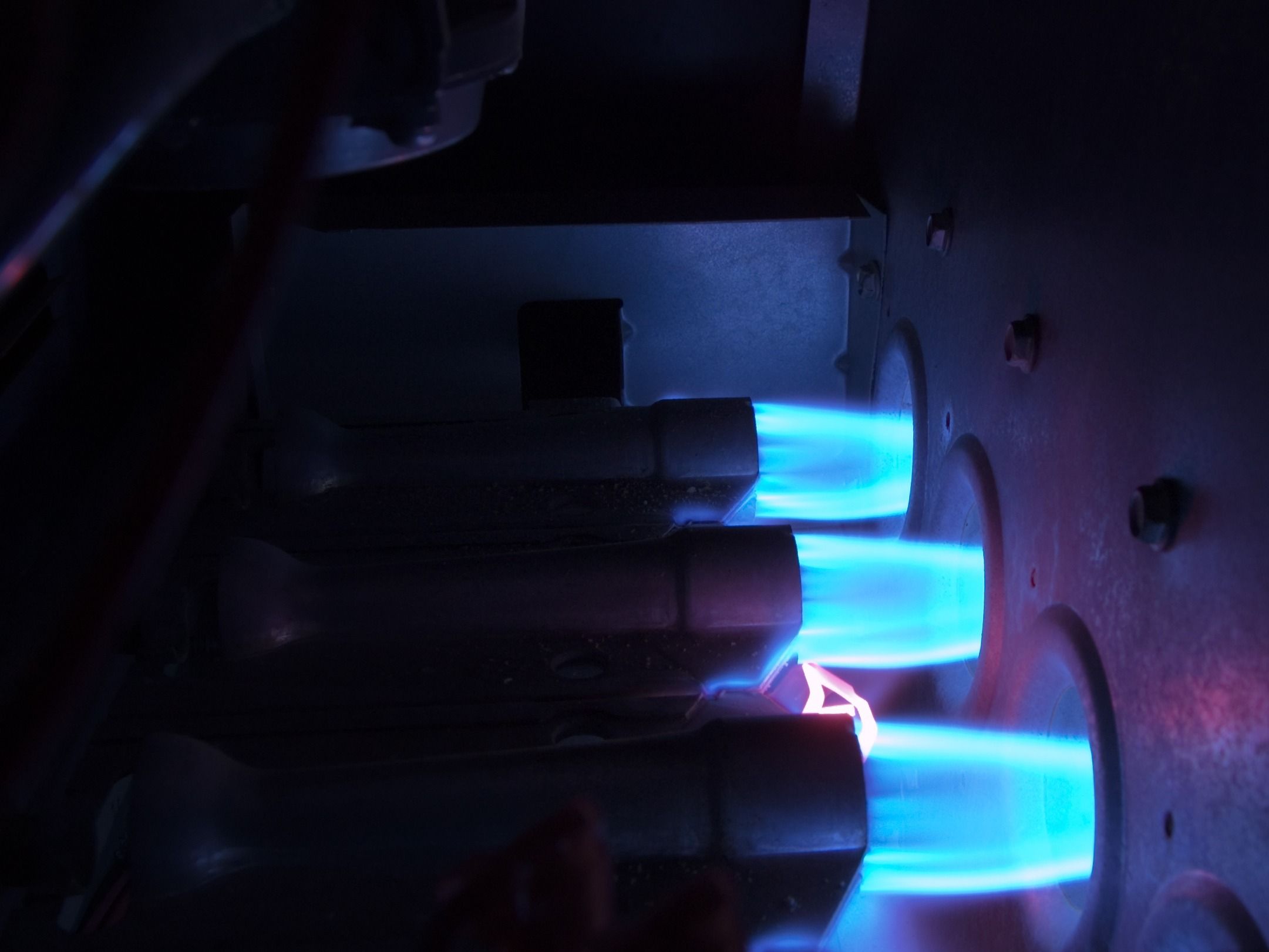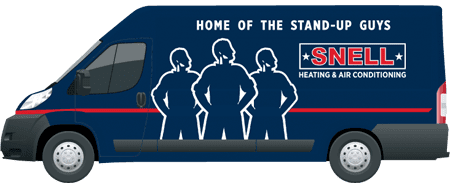
Furnaces are the most common type of heating system in the U.S. Furnaces are an essential part of keeping any home or building warm when it’s cold outside. Furnaces heat air and send it through air ducts to reach every room in a living space. It’s important to keep such an essential piece of equipment in good shape to maximize its lifespan and ensure your safety.
If your furnace smells bad after turning it on after the warm spring and summer months, this usually isn’t a cause for concern. However, if these smells persist for more than a couple of days—or others come into play—that could be a sign of a more serious problem. To help you diagnose issues with your system, we have created a list of 6 issues that can cause your furnace to produce odors.
Why Does My Furnace Smell Funny?
1. Burning Odor
When your furnace lies dormant for the warm months of spring and summer, it collects dust. When you first fire up the furnace as the weather cools down, this dust will burn off and might cause a slight burning odor throughout your house. This smell is perfectly normal and will disappear as you utilize your furnace in the winter season. If your furnace is producing a funny smell for more than a day, you might have a bigger problem on your hands.
2. New System Odors
Upon first use, new furnaces might cause an unpleasant odor due to the protective oil coating on the inside. Much like a new oven, this protective coating must burn off. This smell should last for a day or two at most and doesn’t point to a bigger issue.
3. Smoke Odor
Unlike the first two kinds of smells, a smoke odor coming from your furnace is cause for concern and should warrant the visit of an HVAC expert. A furnace that produces a strange or funny smoky smell may have an obstructed chimney. When the chimney is blocked, smoke can’t pass through it. If smoke can’t pass through the chimney, it will travel through the furnace ducts and infiltrate the environment it’s in. When this happens, shut down the furnace, turn off your gas supply line, and call a professional for help.
4. Plastic Smell
A plastic smell coming from your furnace means that some component(s) are malfunctioning. If left untreated, the overheating of the furnace can cause a fire. If your furnace smells of plastic after first turning it on, shut down the heating system and have an HVAC expert take a look.
Tips & Insights: How Often Will a Furnace Perform Heating Cycles In the Winter?
5. Rotten Eggs Odor
This is probably the most concerning odor that could come from your furnace. Gas companies add a substance to natural gas to warn people when a gas leak has occurred. If you notice a funny rotten egg smell near your furnace, this is a sign of a dangerous gas leak. To prevent health issues, you should evacuate your home immediately. Contact an HVAC professional, and don’t re-enter the house until you’re told it’s safe to do so.
6. Oil Smell
An oily smell coming from your furnace might not be a big deal, but it might need professional attention. An oily odor could mean the filter in your furnace simply needs to be replaced. However, if the smell lasts for more than a day, it could mean that an oil leak has occurred. If this is the case, call a professional to check it out ASAP.

Negative Consequences of an Inadequately Maintained Furnace
If any of the more serious odors explained above aren’t addressed promptly, they could lead to bigger problems in the near or distant future. Taking good care of your furnace helps prevent some of those issues and extends the machine’s life. Take a look at some dangers of having an inadequately maintained furnace and how you should respond when you notice bad smells.
1. Carbon Monoxide Leaks
About half of all U.S. household furnaces are fueled by natural gas. Natural gas furnaces typically contain a mixture of carbon-based fuels, such as methane. Carbon monoxide is a colorless, odorless gas that results from burning carbon-based fuels. Carbon monoxide might cause only minor symptoms—such as headaches—but it can be fatal if someone inhales a significant amount.
All gas furnaces emit small amounts of carbon monoxide. When furnaces are maintained regularly, those small amounts exit through the ventilation system before ever reaching parts of a building. When furnaces aren’t maintained properly, those small amounts of carbon monoxide enter the home and increase over time, resulting in significant amounts of gas in the air. If you notice a funny smell in your living space, call a professional to inspect your furnace to prevent carbon monoxide poisoning. It is important perform regular maintenance checks on your furnace to make sure it’s functioning properly.
Tips & Insights: 6 Signs You Need To Buy a Replacement Bathroom Sink
2. Gas Leaks
A furnace leaking gas can cause a fire—or even an explosion—because gas is highly flammable. When furnaces aren’t maintained, cracks in the gas line can form and grow over time. These cracks allow gas to enter your home. Like you read about above, a gas leak generally causes a rotten egg smell in your furnace. It also can create a hissing sound. If you notice either of these signs, exit your home immediately, and call a professional to take a look at your furnace.
3. Home Fires
Other than gas leaks, home fires sometimes occur because of broken furnace parts, dust buildup, and loose items surrounding the machine. Broken pieces cause machine malfunction. Dust buildup and loose items can catch fire easily. Regular maintenance of your furnace prevents home fires from occurring.

Furnace Repair and Installation Services
The HVAC experts on our team are here to keep your family safe by offering dependable furnace repair and furnace installation services in Virginia. Our 40+ years of industry experience have made us the best emergency heating repair provider in Northern Virginia. In addition, our team offers other types of HVAC repair solutions such as air conditioning repair, gas boiler maintenance, and whole-house humidifier installation. Give our team a call by phone at (703) 543-9649 or book an appointment on our website to receive support with a malfunctioning HVAC system.

